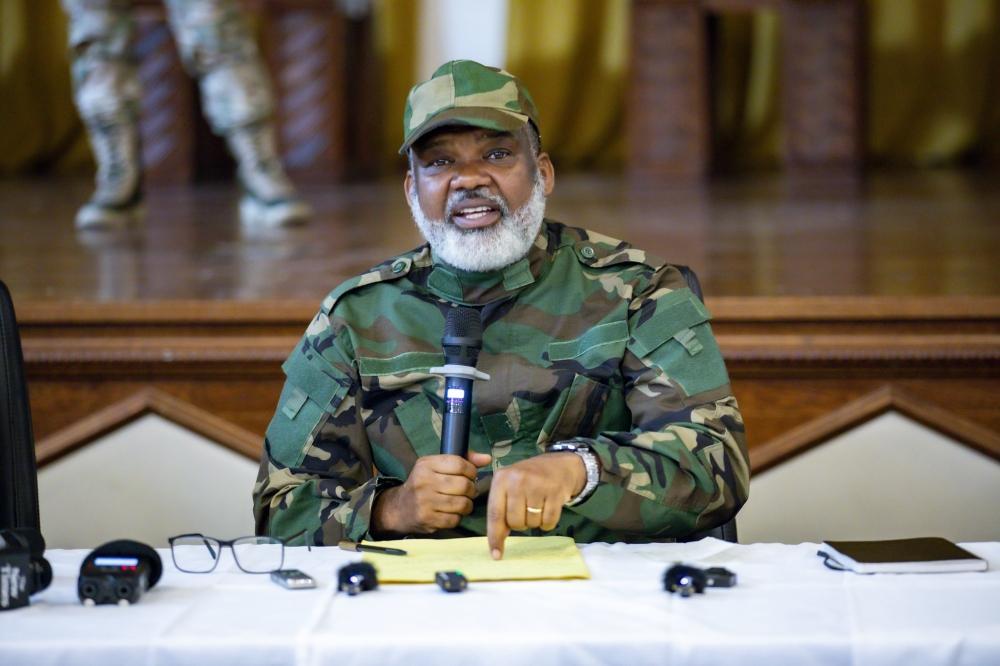Africa-Press – Rwanda. In line with a unilateral ceasefire declared on February 22, and to support peace initiatives aimed at fostering conditions conducive to political dialogue and addressing the root causes of the conflict in eastern DR Congo, the Alliance fleuve Congo (AFC/M23) rebellion on Saturday, March 22 announced that it “decided to reposition its forces from the town Walikale” in North Kivu Province, which it seized on March 19.
The town of Walikale which sits about 130 kilometres northwest Goma, the capital of North Kivu Province which the rebels seized on January 27. It was the farthest west the rebels had reached during their rapid advance this year. Walikale has, for many year, been a stronghold of FDLR, a DR Congo-based terrorist militia founded in mid-2000 by remnants of the masterminds of the 1994 Genocide against the Tutsi in Rwanda.
The Congolese government which has integrated the group’s fighters into its national army ranks – especially in the elite presidential guard brigade – continues to deliberately minimise the existential threat posed by the genocidal militia whose lethal genocidal ideology has wreaked havoc in the country, and the entire great lakes region.
“We call upon the residents of Walikale and their community leaders to take the necessary measures to ensure the security and protection of the civilian population and their property during this transition,” reads part of a statement posted on X by rebel spokesperson Lawrence Kanyuka.
“The AFC/M23 remains committed to a peaceful resolution of the conflict and reiterates its commitment to protect and defend the civilian population as well as its positions.”
‘Provocation will lead to an automatic reversal of decision’
The rebels warned that any provocation or renewed attacks by the Congolese army coalition – comprising hundreds of European mercenaries, the Rwandan genocidal militia, a group of Congolese militias known as Wazalendo, thousands of Burundian troops, South African-led SADC forces, as well as UN peacekeepers – against the civilian population, including in rebel liberated areas “and our positions, will lead to an automatic reversal of this decision.”
Walikale was a vital commercial hub for the Rwandan genocidal militia. The genocidal militia’s president Gaston Iyamuremye, alias Byiringiro Victor Rumuli, now 77, had his main headquarters in the region where many genocide fugitives are believed to have thrived. The rebel advance in the region means some could have been captured while others were forced to bolt, heading in various directions farther inland.
The largest territory in the province, Walikale territory is bordered by Lubero territory on the north, Rutshuru territory and Masisi territory on the east, Tshopo Province and Maniema Province on the west, and South Kivu Province on the south.
According to reports, areas controlled by the genocidal militia were mainly isolated forests and mining sites, exploited illegally and manually, with the militia’s own governance system.
The latest fighting between the Congolese army coalition and M23 rebels started in 2021.
M23 is now part of a larger and continuously growing rebel coalition, Alliance fleuve Congo (AFC), created in December 2023.
On Tuesday, March 17, up to 100 youths from Bweremana, in the Bahunde chiefdom of Masisi territory, “expressed their desire to join” the rebel movement following an awareness-raising campaign conducted by North Kivu Province’s new leaders.
Led by Corneille Nangaa, the former chairman of the Congolese national electoral commission, Alliance fleuve Congo is fighting for governance that supports basic human rights, secures all Congolese citizens, and addresses the root causes of conflict. The rebellion has vowed to uproot tribalism, nepotism, corruption, and the genocide ideology spread by FDLR, among other vices, widespread in DR Congo.
In January, the rebels quickly advanced across North and South Kivu provinces, liberating swathes of territory.
Following heavy fighting triggered by constant violations by the Congolese army coalition, of an earlier set ceasefire, on January 27, the rebels captured Goma, and restored order there.
As the security situation in South Kivu deteriorated amid reports of violence, looting, and abuses propagated by the Congolese army coalition, the rebels again reacted, first capturing the strategic airport of Kavumu, before moving south to capture the regional capital, Bukavu, on February 15.
On Monday, the rebels withdrew from earlier scheduled direct peace talks with the Congolese government, in the Angolan capital, Luanda, on March 18, citing interference by Western countries – especially from the EU, led by Belgium – and certain international institutions who they accused of “deliberately working to sabotage peace efforts” in DR Congo and make the long-awaited talks impossible. Kanyuka said: “The successive sanctions imposed on our members, including those adopted on the eve of the Luanda discussions, seriously compromise direct dialogue and prevent any progress.”
AFC Executive Secretary Benjamin Mbonimpa said: “The EU has just sabotaged the Luanda dialogue which was to begin this Tuesday, March 18, 2025, and bring our organization and the power of Kinshasa around the table! This is where the malicious interference of certain countries nostalgic for colonization leads!”
Villages inhabited by unarmed Banyamulenge civilians are still waking up to attacks, especially bomb explosions, by the Congolese army and its Wazalendo allied militia in South Kivu Province, according to Moise Nyarugabo, a Congolese lawyer.
For More News And Analysis About Rwanda Follow Africa-Press






